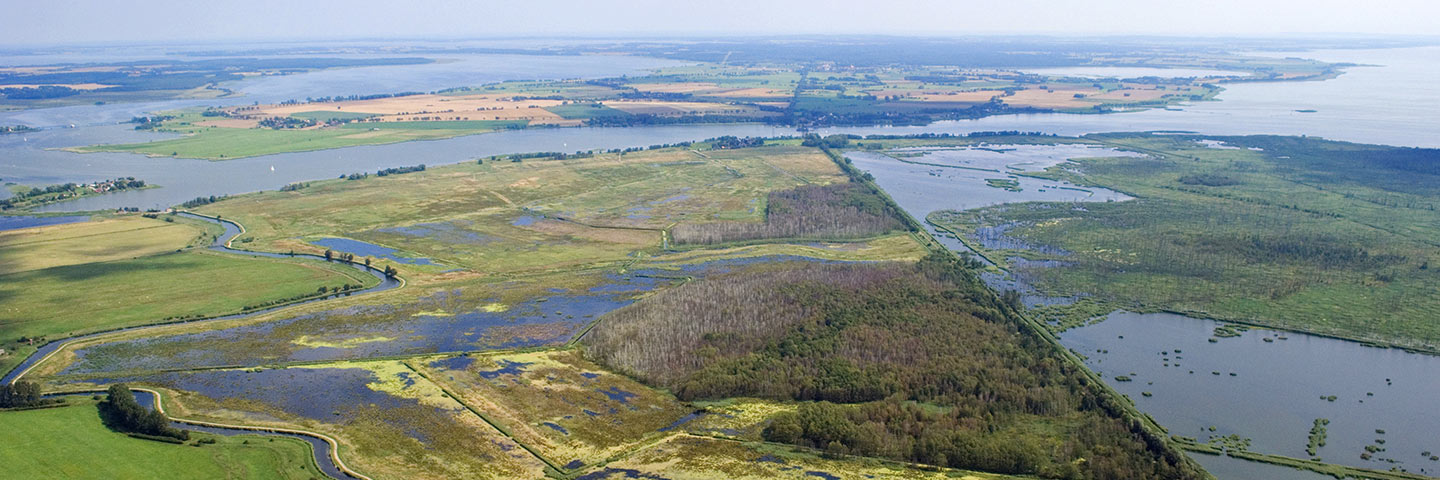Application
Located in the peatland-rich landscape of Mecklenburg-Western Pomerania, Greifswald-based conservationists have used unique windows of opportunity to establish protected areas not only in northeast-Germany, but also in many former Soviet states. These initiatives were honoured with the (Right Livelihood Award) for Prof. Michael Succow in 1997. Strategies for the conservation of peatland biodiversity and in particular for the globally threatened aquatic warbler, have been developed in Greifswald since 2004 and have found implementation in several EU LIFE projects. In 2008, the International Union for the Conservation of Nature (IUCN) nominated Franziska Tanneberger as one of 20 global ‘Earth Movers’ for her achievements in aquatic warbler conservation.
The concept of Paludiculture, i.e. wet peatland cultivation, was developed in Greifswald. International bodies like the Intergovernmental Panel on Climate Change (IPCC), the United Nations Environmental Programme (UNEP), the Food and Agriculture Organization of the United Nations (FAO) and the European Parliament have recognised the significance of the concept and have made it their own. In 2013, the concept of paludiculture received two important German science awards: the CULTURA Prize of the Alfred Töpfer Foundation F.V.S. was awarded to Hans Joosten and the German Sustainability Award went to the project „Vorpommern Initiative Paludikultur – VIP“’. In 2014, the pilot site of the project ‘TORFMOOS’ became one of 100 official Landmarks in the competition ‘Germany – Land of Ideas’ .
Addressing carbon markets as a financing mechanism for peatland rewetting and conservation, scientists from Greifswald have developed guidance for peatland projects under the global Verified Carbon Standard (VCS). Furthermore, they were instrumental in setting up MoorFutures as the world’s first voluntary carbon credits from peatland rewetting, offered since 2011 by the Federal State of Mecklenburg-Western Pomerania. A key element here, is the Greenhouse gas Emission Site Type (GEST) approach, developed in Greifswald.
Since 1999, the Michael Succow Foundation has implemented numerous peatland projects in Germany, Belarus, Ukraine, Kyrgyzstan and the Russian Federation, thus far rewetting more than 15,000 hectares of peatland.
Our work in project implementation includes:
- Conservation of mire biodiversity
- Pilot projects paludiculture / fens
- Pilot projects paludiculture / bogs
- Peatland restoration
- Carbon credits, Payments for Ecosystem Services (PES)








